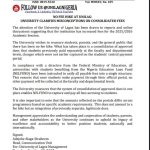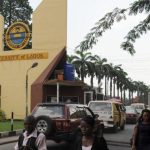The Federal Government of Nigeria has released ₦2.3 billion to settle salary and promotion arrears owed to university lecturers across the country. The Minister of Education, Dr. Tunji Alausa, announced this development, emphasizing that the payment represents Batch 8 of the arrears and demonstrates President Bola Tinubu’s commitment to revitalizing the tertiary education sector.
According to Alausa, the funds were released through the Office of the Accountant-General of the Federation (OAGF), and universities should start receiving payment alerts shortly. He also disclosed that the government is finalizing the release of third-party deductions and pension remittances and that the Earned Academic Allowance (EAA) will be fully integrated into lecturers’ salaries starting from 2026 to ensure predictable and timely payments.
Additionally, the government has released funds under the Needs Assessment of Nigerian Universities initiative and assured stakeholders that negotiations with university unions are ongoing under the Yayale Ahmed Committee.
Dr. Alausa reaffirmed that the government’s approach is based on transparency, fiscal responsibility, and sustainable reforms. He stated that while staff welfare remains a priority, the government will only enter into financially sustainable agreements that align with approved budgetary allocations.
Despite the announcement, some lecturers reported that their October 2025 salaries remain unpaid, raising doubts about the government’s claims. Lecturers from institutions like Nnamdi Azikiwe University, Awka, and Federal University of Technology, Minna, expressed frustration over delayed salary payments and poor communication.
Meanehile, the Academic Staff Union of Universities (ASUU) continues to demand the: implementation of the renegotiated 2009 ASUU-FGN Agreement, payment of withheld salaries and promotion arrears, revitalisation of public universities, and sustainable funding mechanisms for the tertiary education sector.
ASUU recently ended a two-week warning strike following interventions from the Nigeria Labour Congress (NLC) and the National Assembly, but tensions remain high due to unfulfilled promises and delayed payments.


